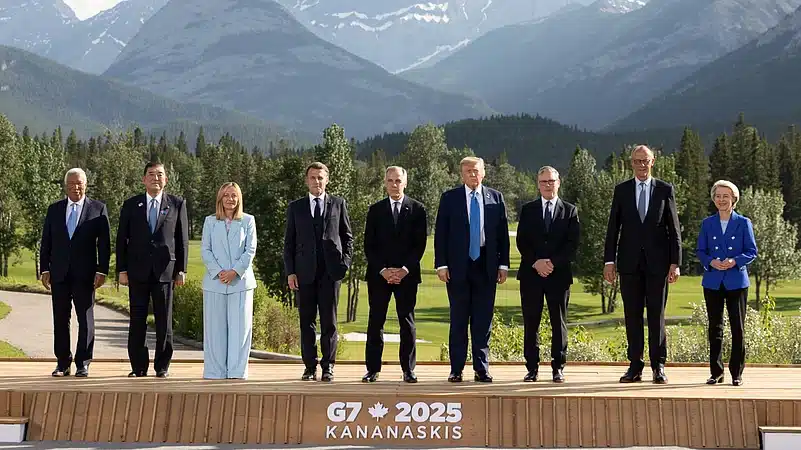G7 Approves ‘Side-by-Side’ System for Global Minimum Tax

In a significant move, the Group of Seven (G7) nations have reached an agreement to exempt US-based multinational corporations from critical aspects of the global minimum tax framework. This new “side-by-side” system, which also extends similar benefits to British businesses, allows American firms to be taxed solely within the US on both domestic and foreign profits. The decision aims to enhance stability and certainty in the international tax landscape, following the removal of a contentious provision from a previous US tax bill.
Details of the New Tax Framework
The G7’s new tax framework represents a pivotal shift in how multinational corporations will be taxed. Under this agreement, US companies will no longer face additional top-up taxes on their foreign earnings. Instead, they will be subject to domestic taxation, which aligns with existing US tax laws, including the domestic minimum tax. This approach effectively carves out exemptions from the OECD’s Income Inclusion Rule (IIR) and Undertaxed Profits Rule (UTPR), providing a more favorable tax environment for American businesses operating abroad. The G7 announcement, made by Canada, the current president of the group, emphasized that this system is designed to foster greater stability and certainty in international taxation.
Impact on British Businesses
British businesses are set to benefit from the G7’s new tax agreement as well. The relief provided under this framework addresses concerns that UK firms had regarding potential punitive tax measures. British finance minister Rachel Reeves expressed her approval of the agreement, stating that it offers much-needed certainty for businesses that had previously voiced their worries about aggressive tax policies. Reeves also reiterated the UK’s commitment to combating tax avoidance on a global scale, indicating that the government will continue to work towards fair tax practices.
Background and Context
The agreement follows a tumultuous period marked by the withdrawal of the United States from the 2021 OECD-brokered global tax deal. This earlier agreement aimed to ensure that large multinational corporations would pay a minimum tax rate of 15% globally and was supported by nearly 140 countries. The US’s exit from this deal raised concerns among international investors, particularly after former President Donald Trump threatened retaliatory taxes on countries applying the global rules to American firms. The recent removal of Section 899 from Trump’s tax bill, which proposed such retaliatory measures, has paved the way for this new consensus among G7 nations.
Next Steps and Future Discussions
The G7 leaders have indicated that the agreement will undergo further discussions at the OECD level to formalize how the exemptions for US and UK firms will be recognized within the global tax regime. The US Treasury has expressed optimism about the side-by-side approach, highlighting its potential to preserve gains made by jurisdictions within the Inclusive Framework. As discussions progress, G7 leaders have emphasized the importance of ensuring that the final solution is acceptable and implementable for all member countries, reflecting a collaborative effort to address the complexities of international taxation.
Observer Voice is the one stop site for National, International news, Sports, Editor’s Choice, Art/culture contents, Quotes and much more. We also cover historical contents. Historical contents includes World History, Indian History, and what happened today. The website also covers Entertainment across the India and World.
Follow Us on Twitter, Instagram, Facebook, & LinkedIn

